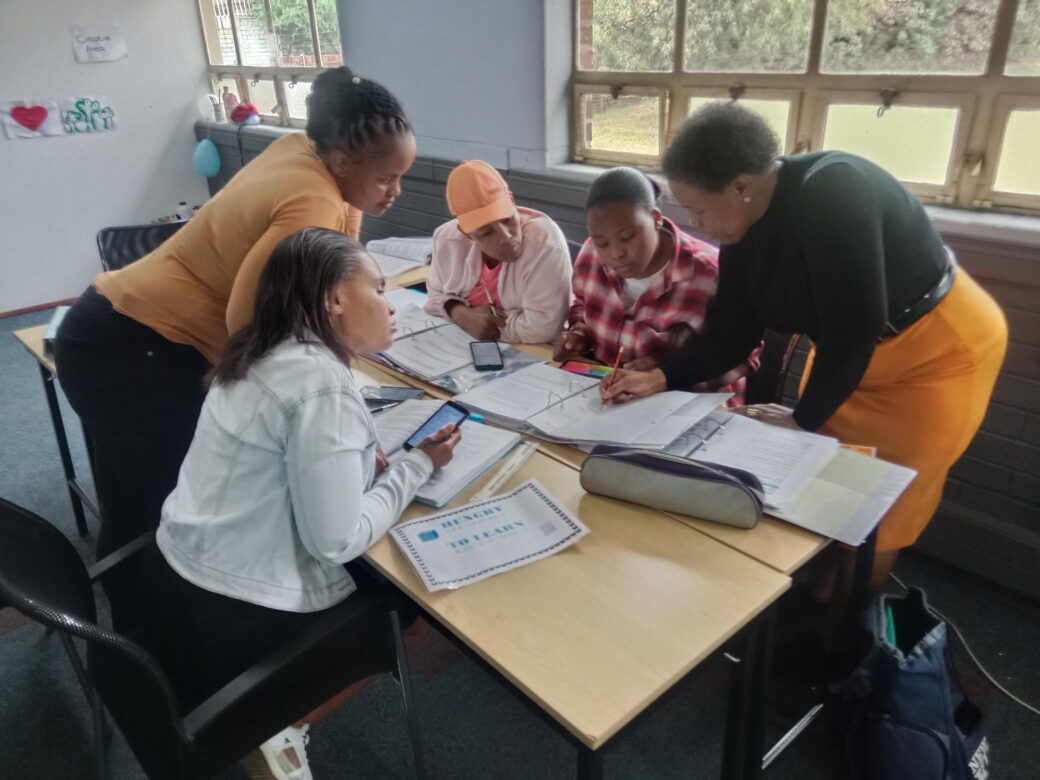MGSLG continues to drive change within the Education Sector.
The International Reading Literacy Study outcome for the 2021 assessment that was released on the 16th of May 2023 revealed that South Africa performed poorly in one of the premier assessments of reading ability, which involved more than 50 countries. According to this assessment outcome, 81% of Grade 4 learners in South Africa cannot read for meaning in any language including their home languages.
Since the International Literacy Study assessment commenced in 2006, the percentage of South African pupils that could not read improved and declined from 87% in 2006 to 82% in 2011 to 78% in 2016, however now has increased back to 81% in the 2021 assessment outcomes.
This is an indication that there is a high demand for South Africa to apply robust and adequate strategies and tactics to improve and strengthen the foundation of its education system. This could be done by building enough preschools, and training and deploying adequate Early Childhood Development (ECD) Practitioners across South Africa.
Early Childhood Development is the physical, psychological, cognitive, and social development that a child experiences from infancy up to middle childhood (from birth to nine years of age). It is one of the key pillars that are meant to improve the quality of education in South Africa. It is a vital and essential method to provide a child with a base for lifelong learning abilities. It is a building block that develops and prepares a child to be ready for the subsequent grades and future success and this in return helps to bridge the gap of social inequality, helps to fight, and reduce poverty and improve economic activities in the country and in the world.
Over the past years, the outcomes of the International Reading Literacy Study displayed that there is still a considerable gap and high demand for Matthew Goniwe School of Leadership and Governance (MGSLG) to reshape, strengthen and improve the foundation of primary education across South Africa. Over the past years, MGSLG have been working tirelessly with the aim to arm and capacitate ECD practitioners in Gauteng wide, with the knowledge and skills that are required to develop, entertain, and stimulate the child’s mind. However, other provinces within the country are still not pulling with the same pace and amount of power in terms of improving and augmenting the foundation of basic education.
Since 2011, MGSLG has effectively rolled Early Childhood Development NQF Level 4 out to 4900 Pre-Grade R practitioners from all 15 districts of Gauteng. This is the programme that allows them to further their qualifications in obtaining a diploma in Grade R teaching at NQF Level 6 which affords them an opportunity to qualify for a Bachelor of Education (B.Ed.).
The duration for this pivotal training programme is seventeen to 18 months and it forms a key component of the Provincial and National Governments’ aim, which is to transform improve and transform the Education sector in the country. Currently, cohort 7 of 500 practitioners is being trained on this programme in various venues across Gauteng, started in August 2022 and will come to an end in November 2023. Again in the 2023/24 financial year, another cohort with 500 practitioners will be trained on this programme.
One of the participants Mrs Tsakane Mothupi from JHB Central is feeling so honoured and grateful to be among the people that are being trained on this crucial programme and she said. ‘’This workshop is such an eye-opener to me, it’s very fruitful. There are a lot of things that I didn’t know before, but now I have learnt a lot and I can do everything that they taught us here without being helped by anybody. I have learnt about the domains of children which are social, emotional, physical, cognitive and language. The course teaches us about how to teach children to develop their bodies through gross motor skills and fine motor skills, we will also have to teach them to communicate through singing and reading stories for them and teach them how to be creative using colours. The course also covers the management of the ECD centre and the safety part of it (the environment of an ECD Centre should be clean and conducive all the time’’. Ms Yolandi Hayward from The Apple Blossom Nursery School in Johannesburg South at Turf Club is also grateful for being trained on this pivotal programme as she gained a lot of knowledge and skills, particularly on the ECD Centre Management part of it. She is now going to apply the knowledge and ECD Management skills that she learned to run her Nursery School efficiently and effectively.
ECD NQF Level 4 is also a qualification that provides a means for formal recognition for the practitioners who are already working as practitioners in ECD Centres but without qualifications, as well as those who wish to enter the field. It also provides the basis for further professional development in the higher education and training band for many experienced practitioners in the field who have limited or difficult access to further career development opportunities.
Wrtten By: Bayanda Magoswana

